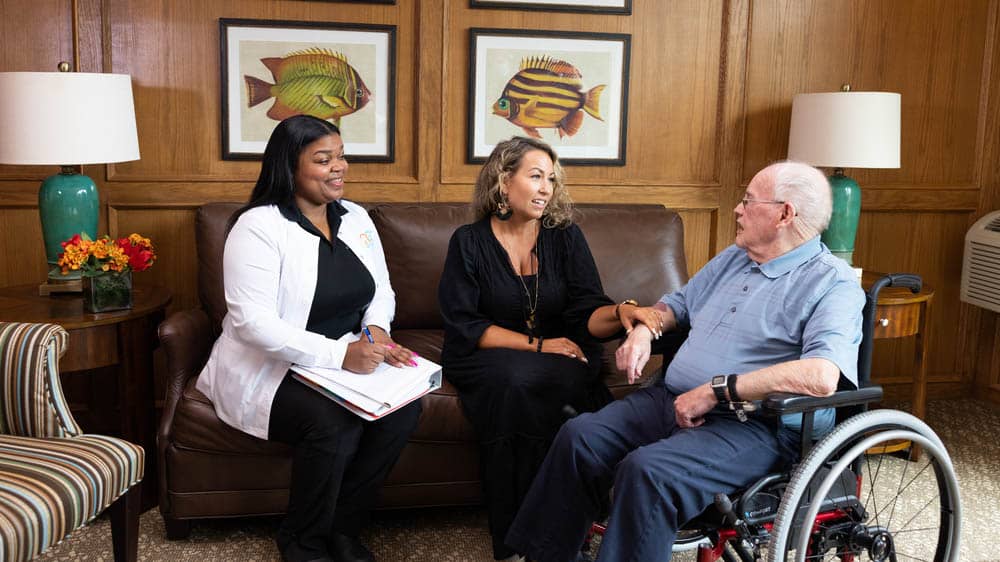

How To Deal With a Serious Health Diagnosis
Receiving a serious health diagnosis can be a life-changing moment. Whether it’s a chronic condition, a new illness, or a progressive disease, the news can stir up a whirlwind of emotions. You might feel shock, fear, anger, sadness, or even disbelief—and all of these reactions are completely normal. Adjusting to a diagnosis takes time, but there are things you can do to move forward with strength and resilience.
Step 1: Take a Breath
Hearing a diagnosis can be overwhelming, and your first instinct might be to panic or try to solve everything at once. Instead, give yourself time to process the information. It’s OK to feel emotional or even confused in the beginning. Sit with your feelings, and allow yourself the grace to experience them without judgment.
Step 2: Gather Information
Knowledge is power. Ask your doctor detailed questions about your diagnosis. Understanding what you’re dealing with can help reduce anxiety and give you a sense of control. Some good questions to start with include:
- What does this diagnosis mean for my daily life?
- What are my treatment options?
- What is the long-term outlook?
Take notes during your appointment or bring a trusted family member or friend to help you absorb the information. Reputable online resources and patient advocacy groups (such as the Alzheimer’s Association, the American Cancer Society, or the Parkinson’s Foundation) can also provide valuable insights.
Step 3: Build Your Support System
You don’t have to face this journey alone. Share your diagnosis with trusted loved ones—friends, family members, or caregivers—so they can offer emotional and practical support. If you find it difficult to open up, consider joining a support group where others who have been through similar experiences can provide understanding and encouragement.
Step 4: Take Charge of Your Health
Even with a serious diagnosis, there are steps you can take to maintain or improve your quality of life:
- Follow your treatment plan. Work closely with your health care team to stick to prescribed treatments, therapies, or medications.
- Adopt a healthy lifestyle. Eating nutritious foods, staying physically active within your limits (and as approved by your doctor), and prioritizing sleep can make a big difference.
- Manage stress. Practices like mindfulness, meditation, or yoga can help you cope with anxiety or sadness.
- Attend follow-up appointments. Regular check-ins with your doctor ensure that your condition is being managed effectively.
Step 5: Plan for the Future
While it might feel daunting, planning for the future can provide peace of mind. This could include:
- Discussing advance care directives with your family or health care provider.
- Reviewing your financial or legal documents.
- Exploring options for home care or assisted living if needed.
Thinking ahead isn’t about expecting the worst—it’s about feeling prepared for whatever comes your way.
Step 6: Find Joy in Every Day
Your diagnosis doesn’t define you. Focus on activities that bring you happiness, whether it’s spending time with loved ones, enjoying hobbies, or exploring new interests. Small moments of joy can have a profound impact on your well-being.
Remember: You Are Not Alone
Navigating a health diagnosis can feel like a heavy burden, but you don’t have to carry it by yourself. Lean on your support network, trust your health care team, and take each day one step at a time. With the right resources and mindset, it’s possible to live a meaningful and fulfilling life even in the face of a serious diagnosis.
You are stronger than you think—and this is just one chapter of your story.
How Right at Home Can Help
Right at Home offers a wide range of services, including shopping and preparing meals, overseeing exercise, and providing hygiene assistance and transportation to doctor appointments. We also provide respite time for family caregivers. To find out more, use our office locator to contact the nearest office and ask for a FREE in-home consultation.
Interested in receiving ongoing tips, advice, and information related to the aging journey? Subscribe to our Caring Right at Home e-newsletter today.







